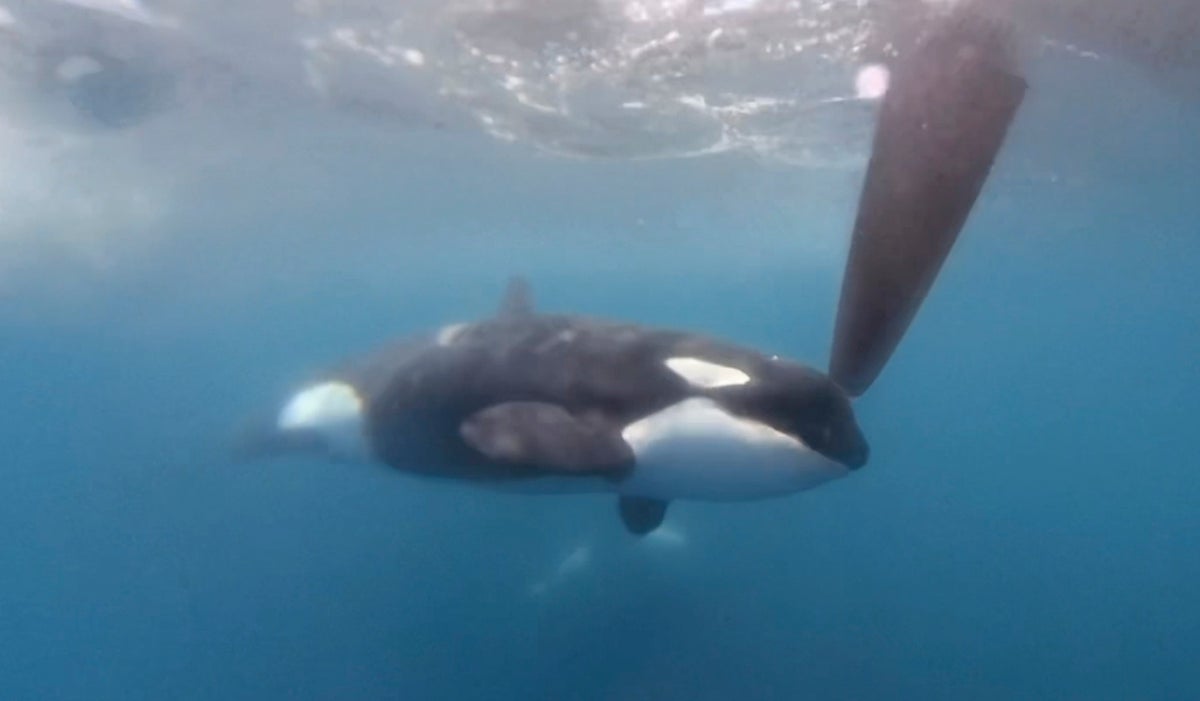
Mummy’s boy male killer whales are being helped out in fights by their sprightly mothers, research has suggested, but maternal favouritism can see females left to fend for themselves.
A study of teeth marks has shown that post-menopausal female killer whales are more likely to protect their sons than their daughters in fights - although the study did not go as far as to show if the males felt any embarrassment at having their mum back them up.
Scientists from the University of Exeter, University of York, and Centre for Whale Research found male killer whales had fewer tooth rake marks from conflict if their mother had stopped breeding.
The researchers feel that mothers are stepping in to assist their sons because they have increased reserves of energy and time once their breeding stops.
A killer whale member of the Bigg's orca T65B pod is seen in the Salish Sea near Eastsound, Washington— (REUTERS)
Lead author Charli Grimes, from the Centre for Research in Animal Behaviour at the University of Exeter, said the mothers see the males as being more worthy of protection as they can pass on their genes more widely.
“We were fascinated to find this specific benefit for males with their post-reproductive mother,” she said, “These males had 35 per cent fewer tooth marks than other males.
“For males whose mother was still breeding, we found no evidence that her presence reduced tooth rake injuries.
“We can’t say for sure why this changes after menopause, but one possibility is that ceasing breeding frees up time and energy for mothers to protect their sons.
“Tooth rake marks are indicators of physical social interactions in killer whales and are typically obtained through fighting or rough play.”
There are only six species that are known to experience menopause – humans and five species of toothed whales – and scientists have long been puzzled about why this occurs.
The study is part of long-term research on southern resident killer whales, also known as orcas, which live off the Pacific coast of North America.
The body of evidence suggests that – instead of competing with their daughters to breed – female killer whales have evolved to pass on their genes by helping their children and grandchildren.
Commenting on why females focus efforts on their sons, Ms Grimes said: “Males can breed with multiple females, so they have more potential to pass on their mother’s genes.
“Also, males breed with females outside their social group – so the burden of raising the calf falls on another pod.”
Because southern resident killer whales feed on salmon and have no natural predators, tooth marks on their skin can only be inflicted by other killer whales.
Commenting on how mothers protect their sons, Professor Darren Croft, also from the University of Exeter, said: “We can’t say for sure.
“It’s possible that the older females use their experience to help their sons navigate social encounters with other whales.
“They will have previous experience of individuals in other pods and knowledge of their behaviour, and could therefore lead their sons away from potentially dangerous interactions.
“The mothers might also intervene when a fight looks likely.”
Professor Croft added: “The similarities with humans are intriguing.
“Just as in humans, it seems that older female whales play a vital role in their societies – using their knowledge and experience to provide benefits including finding food and resolving conflict.”
Additional reporting by PA.







